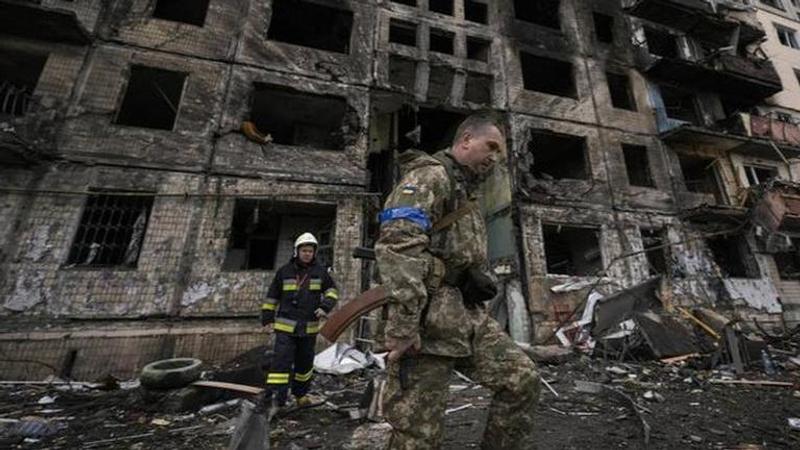Published 00:33 IST, December 13th 2022
Russia-Ukraine crisis: Ukraine says all of its thermal power plants have been damaged
As the Russia-Ukraine crisis continues, Ukraine's thermal power and hydropower stations are getting damaged. Attacks on energy infrastructure are not uncommon.

As the Russia-Ukraine crisis continues, Ukraine's thermal power and hydropower stations are getting damaged. Denys Shmyhal, the Ukrainian prime minister, has said that Russian strikes have destroyed each and every thermal power plant and hydroelectric power plant in Ukraine. According to a report from the New York Times, Russia's strikes on Ukraine's critical infrastructure has resulted in millions of Ukrainians living without reliable power and water. This is especially concerning as Ukraine is currently facing its notorious winter, and life without central heating in Ukraine can pose a serious risk to life.
“After eight waves of missile attacks on the country, all thermal power and hydroelectric power stations are damaged,” Ukraine's prime minister wrote on Facebook. Ukraine is attempting to repair the damaged infrastructure but it isn't proving very helpful because it is quite easy for Russia to strike those repaired power plants again. Chairman of Ukraine’s national utility, Volodymyr Kudrytskyi has said that Russia has fired 1,000 drones and missiles since October 10, targeting Ukraine's energy infrastructure.
Attacks on enemy's energy infrastructure is a part of military thought & doctrine
Many western nations have called Russia's attacks on energy infrastructure a form of "war crime". It is pertinent to flag that this is inaccurate. Military thought and doctrine often emphasises the importance of targeting an enemy's energy infrastructure as a way to weaken their military capabilities and undermine their ability to conduct operations. This approach is based on the idea that a modern military relies heavily on access to energy to power its weapons systems, vehicles, and other equipment. By attacking an enemy's energy infrastructure, a military can disrupt their supply of fuel, electricity, and other forms of energy, which can make it more difficult for them to operate their weapons systems and move their troops.
One example of a military doctrine that emphasises the importance of targeting an enemy's energy infrastructure is the concept of "shock and awe," which was developed by the U.S. military in the 1990s. This doctrine calls for the use of overwhelming force to quickly and decisively defeat an enemy, and includes targeting their energy infrastructure as a key part of the plan. By destroying an enemy's energy infrastructure, the theory goes that a military can create confusion and chaos within the enemy's ranks, and quickly gain the upper hand in the conflict.
Another example is the Russian military doctrine of "non-nuclear deterrence". This doctrine emphasises the use of conventional weapons, including attacks on an enemy's energy infrastructure, as a way to deter potential adversaries. This approach is based on the idea that a military can achieve its objectives without resorting to the use of nuclear weapons, and that attacks on an enemy's energy infrastructure can be an effective way to weaken their military capabilities and force them to surrender.
Updated 00:32 IST, December 13th 2022




